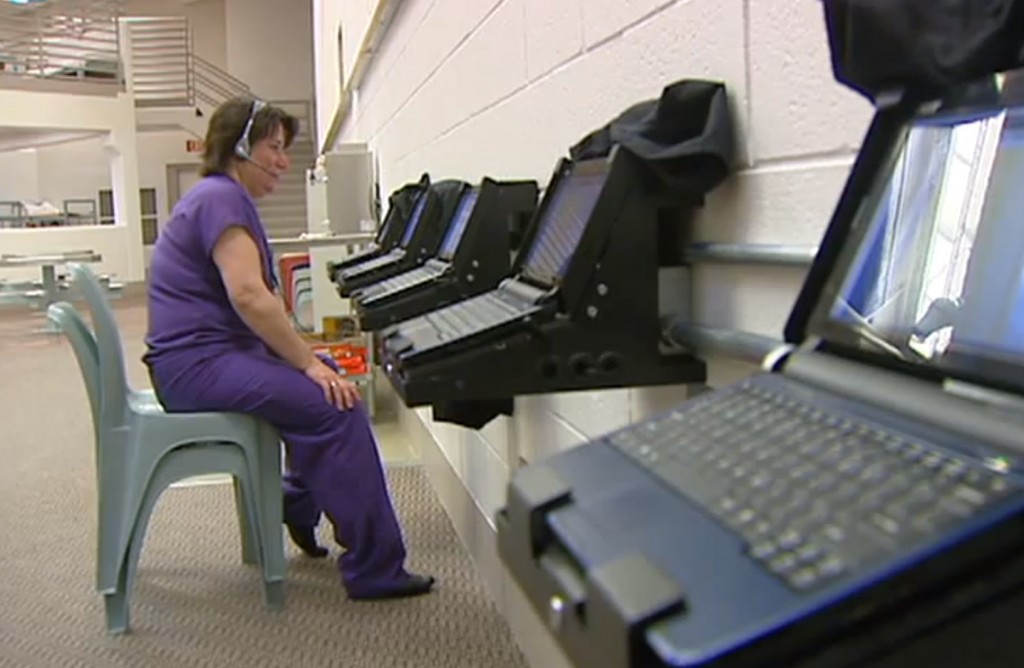Dallas County reconsidering a deal with jail video visitation company
Dallas County has restarted contract negotiations with a local company to allow its jail inmates to video chat with people on the outside.
A proposed deal with Securus Technologies could go before the Commissioners Court as soon as next week. Securus would install the video conferencing technology for free. It would make money by charging inmates a fee to use the service.
Earlier this month, commissioners rejected a deal with Securus because of concerns that it would have required the county to ban in-person visits at the jail. Opponents also argued that the deal would have allowed the county and Securus to profit off inmates who wanted to speak with their families.
After hearing those concerns, the court decided to throw out the contract and reach out to other companies. They later changed their minds and decided to negotiate exclusively with Securus. If a deal is reached, the Dallas-based company will also provide the county with inmate phone services.
Dallas County decided to go back to Securus after legal concerns were raised about re-opening the bidding process. Still, commissioners said they are confident that they can secure a contract that isn’t exploitative or unduly expensive.
They have told county staff to negotiate a deal that doesn’t restrict face-to-face visits at the jail. And they said they don’t want to receive any commission off the profits that Securus makes from the video chats.
If those parameters aren’t met, the court will reject the contract and start the bidding process over, they said.
“It is very important that we do not profit on the backs of inmates in the jail,” Commissioner Elba Garcia said.
But even a deal with those restrictions will likely be controversial. County Judge Clay Jenkins said the county would still collect commission off phone calls. That, he said, is bad public policy and perhaps immoral.
“It is not right to charge them a fee to talk to their loved ones over and above cost recoupment,” he said.
Jenkins opposed a deal with Securus ever since the details of the first proposed contract went public. He said he wants a deal that wouldn’t charge commission on phone calls or video chats. He said he also wants “no new restrictions” on face-to-face visits and for the provider to charge a “transparent, flat per-minute rate” on calls and video chats.
Critics of jail phone systems say the providers often charge exorbitant rates and generate massive profits. The counties allow it, critics say, because they are paid commissions that allow them to share in the profits. Last year, Dallas County made $2.8 million in commission from phone calls, Jenkins said.
Eighteen people spoke out against that kind of deal at Tuesday’s Commissioners Court meeting. The group included District Attorney Craig Watkins and several people who said they wracked up large phone bills while serving sentences that were later overturned.
“We should not be looking at our criminal justice system for profit,” Watkins said.
Joshua Conklin, vice president of sales for Securus, disputed that characterization. He said Securus works with about 100 counties across the state. The company provides a vital service to families of inmates, while monitoring the calls to protect the community at large.
“It is hard to balance the needs of an inmate who has not been convicted of a crime with the security required to keep a known gang leader from contacting elected officials,” Conklin said.
Opponents have exaggerated the profits generated from such services, he said. Securus made 7 percent net profits last year, he said.
“We are a good company,” he said. “We are not making money hand over fist.”

